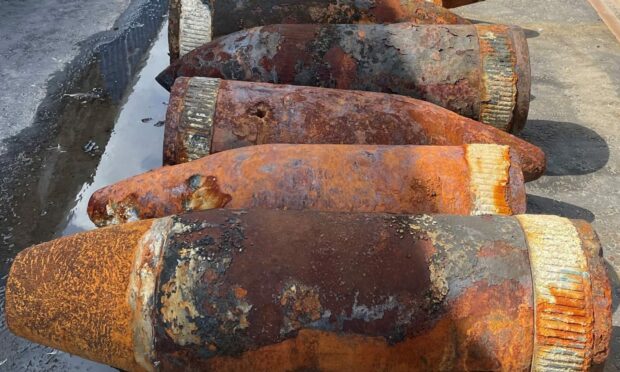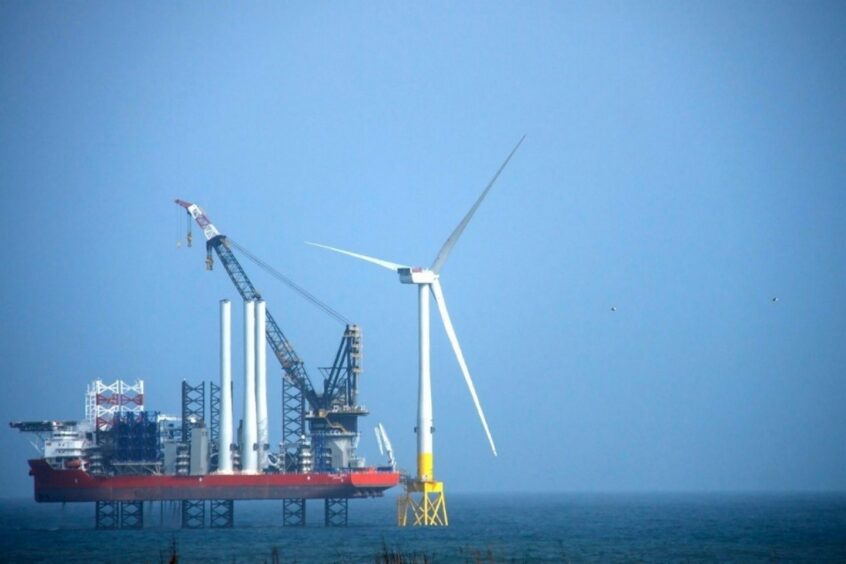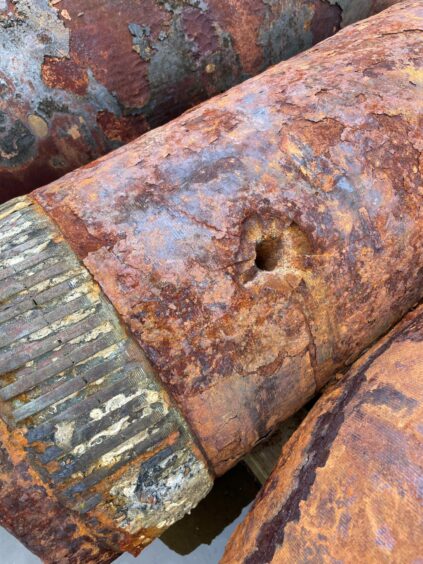More than 70 undetonated wartime explosives have been made safe at the Moray West offshore wind farm being built 14 miles off the coast of Caithness.
The devices – known as confirmed unexploded ordnance (cUXOs) – include mines, other bombs, naval missiles and torpedoes from the First and Second World Wars.
They were made inactive by “low impact” technology used by experts who have been working in the area – part of the Outer Moray Firth – since the beginning of this year.
It’s a great UK success story that we are proud to be supporting.”
Pete Geddes, project director, Moray West
An initial investigation phase and ongoing disposal stage have been managed by a company called Eodex. It specialises in the safe disposal of unexploded ordnance (UXO) around the world.
The Portsmouth-headquartered firm opened a base in Aberdeen about two years ago.
According to Eodex, it aims to avoid detonation of seabed munitions whenever possible.
Sealife-friendly technique to remove unexploded bombs from Moray Firth
Its “marine environment-friendly” systems – used by the Royal Navy and many other armed forces around the world – are said to be ideal for work near offshore wind farms.
The firm was awarded its Moray West contract by offshore wind developer Ocean Winds in January. The value of the deal was undisclosed.
Eodex has highlighted a 100% success rate for its “low order deflagration” method, with no “high order” detonations occurring. The innovative technique involves small magnesium cones being fired at devices, causing their explosive contents to burn out from the inside.
Independent noise monitoring of the first 30 detonations at Moray West showed the system was quieter than initially modelled, delivering better-than-expected environmental results.
‘Immensely proud’
Eodex chief executive Simon Morgan said the company was “proud to bring the only government-tested and environmentally proven technology to the renewable sector for Ocean Winds and the Moray West project”.
He added: “We have now safely and successfully deflagrated over 60 targets – more than the rest of the UK industry put together so far this year, securing a safe environment for sea life and the subsea environment. We are immensely proud of the positive effect we have had and look forward to completing the project in the next month or so.”
EODEX have always believed in the power of responsible working practices to positively impact our environment🌊
Learn more about our initiatives and goals in our sustainability policy here ➡️🌎 https://t.co/DJ8MwK75z7#EODEX #sustainability #renewableenergy #offshoreservices
— EODEX (@EODEXGROUP) August 4, 2023
Moray West project director Pete Geddes said: “Despite the challenges of UXOs…, we have been delighted with the service from Eoderx and their innovative deflagration solution. It’s a great UK success story that we are proud to be supporting.
“Eodex have proven their solution and ability to deliver it to minimise UXO impact for the project and the environment. We are developing our project amongst prized cetacean populations, so have welcomed an approach… that has avoided impacts on the whales and dolphins.”
According to explosives expert Roland Alford, chief executive of Wiltshire-based Alford Technologies, other methods of ordnance disposal can cause “significant environmental damage and harm to marine mammals”.
Once built, Moray West is expected to generate enough energy to power the equivalent of 1.33 million homes in support of the Scottish and wider UK drive towards net-zero.
Read more: Campaigning Ab Fab star Joanna Lumley can count on North Sea bomb firm Eodex for support.



Conversation